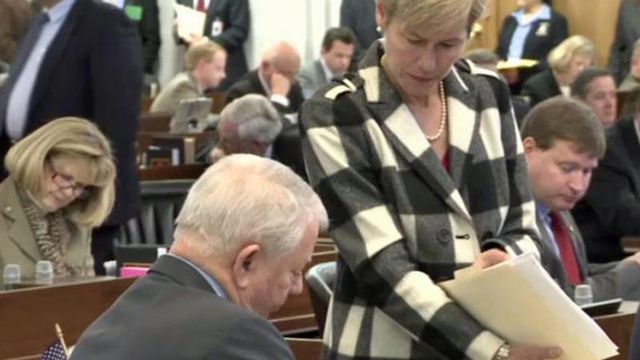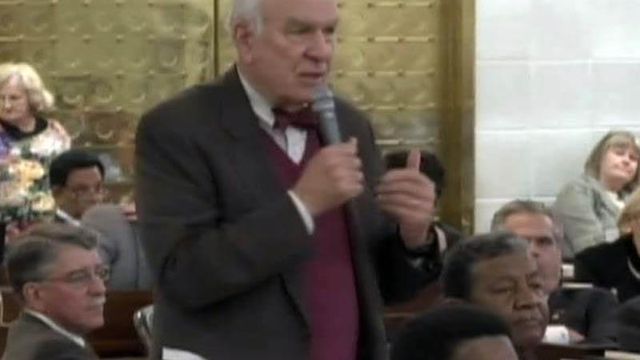One more vote for budget, funding cuts
State Senate Bill 13, the "Balanced Budget Act of 2011," is one vote away from Gov. Perdue's desk.
Posted — UpdatedThe “Balanced Budget Act of 2011” is just one vote away from the governor’s desk.
Senate Bill 13, already through by the state Senate, won tentative approval in House Wednesday. It’s set for a final vote Thursday in the House. If it passes unamended, it’ll go straight to Perdue, who has 10 days to decide what to do with it.
It may be a tough decision. The measure would give her something she asked for: the power to cut current-year budgets to hold back money that could make next year’s budget gap a little easier to cover. But it comes with something she doesn’t want: steep cuts to economic development funds her administration relies on to help recruit new jobs to the state.
The bill would cut about $140 million overall from a long list of dedicated state funds. More than half that total would come out of economic development money -- and that was the focus of Wednesday’s House debate.
Senior Appropriations Chair Harold Brubaker, R-Randolph, introduced the bill on the floor saying, “Having to fill a budget gap of $3.7 billion, if you look at a straight percentage, that’s an 18 percent gap that’s got to be handled. Senate Bill 13 is first step in that direction.”
“This is part of the total job package that we’re going to be rolling out later,” Brubaker added. “And the best job creation is cutting taxes.”
Tempers wore thin as the debate wore on, with Democrats trying one amendment after another to exempt economic development funds from the cuts.
Anson Democrat Pryor Gibson warned the GOP majority that cutting those funds would send businesses a message, “A big ol’ neon billboard that says North Carolina doesn’t care about attracting you anymore.”
Gibson argued the $8 million or so the state would gain from cutting JDIG and OneNC funds would barely move the needle on the $3.7 billion budget gap. “This is not about corporate welfare. It’s about closing a deal. Sometimes you have to do a little more than you want to close a deal. That’s all this little speck of money is.”
But Johnston Republican Leo Daughtry argued those “specks” add up. “We’re all going to have to take cuts to get to 3.7 billion dollars.”
Pasquotank Democrat Bill Owens invoked public opinion. “Everybody across this state, no matter what party you’re in or what polls you read – ‘jobs, jobs, jobs’ is what’s on everybody’s mind. The last thing we need to be cutting out of the budget is anything that creates jobs.”
Republicans pointed out that, with less than five months left in the fiscal year, millions of dollars is still sitting unspent in the funds’ accounts. “We all campaigned this year on jobs,” McDowell Republican Mitch Gillespie countered. “If this harmed job creation in this state by any way whatsoever, I can assure you I would not be voting for it. I don’t believe it does.”
But it was Minority Leader Joe Hackney who offered the bluntest criticism, accusing the GOP leadership of moving too fast and failing to grasp how job recruitment works. Citing the revised shortfall figures that came out this afternoon, Hackney advised Republicans to slow down. “It changes, and it’ll change again before May or June,” Hackney said, labeling the cuts “either unnecessary or premature, one or the other.”
Heated as it was, the three-hour debate failed to change minds on either side of the aisle. The final vote was straight party-line, 66-51. And there’s not much reason to expect that to change in Thursday’s final vote.
Copyright 2024 by Capitol Broadcasting Company. All rights reserved. This material may not be published, broadcast, rewritten or redistributed.






